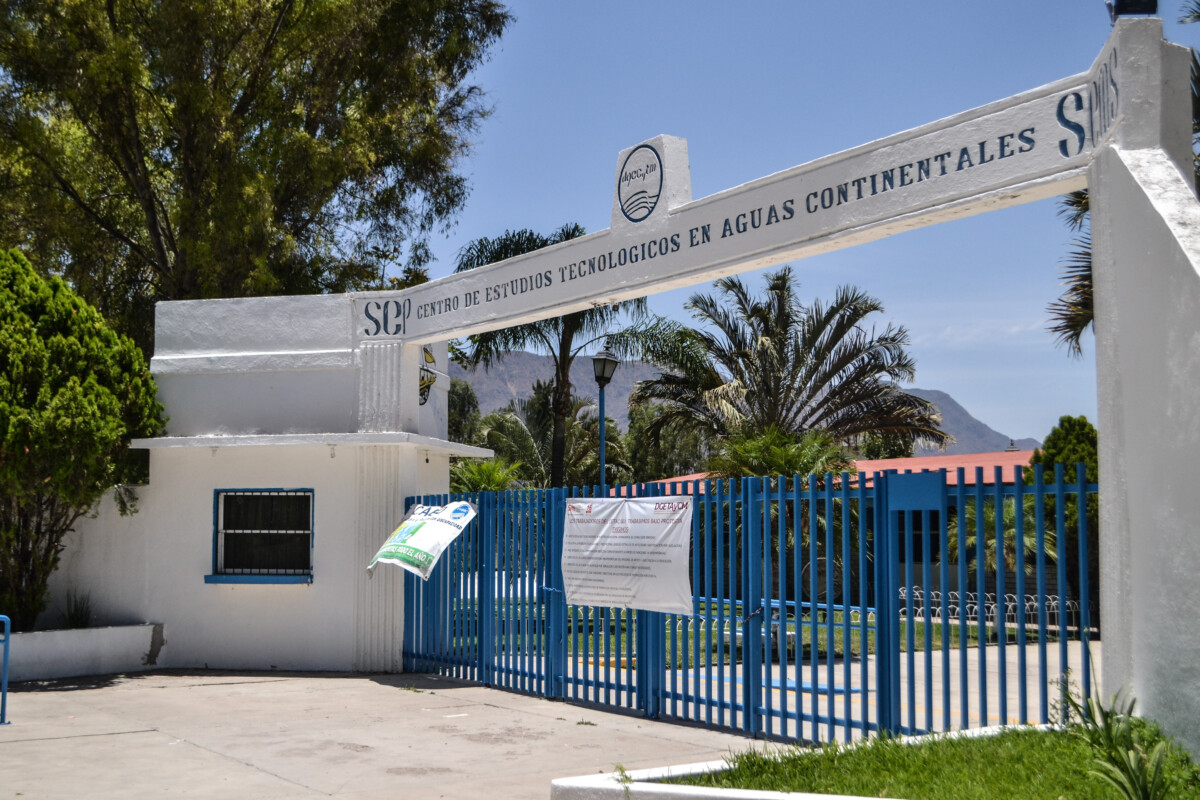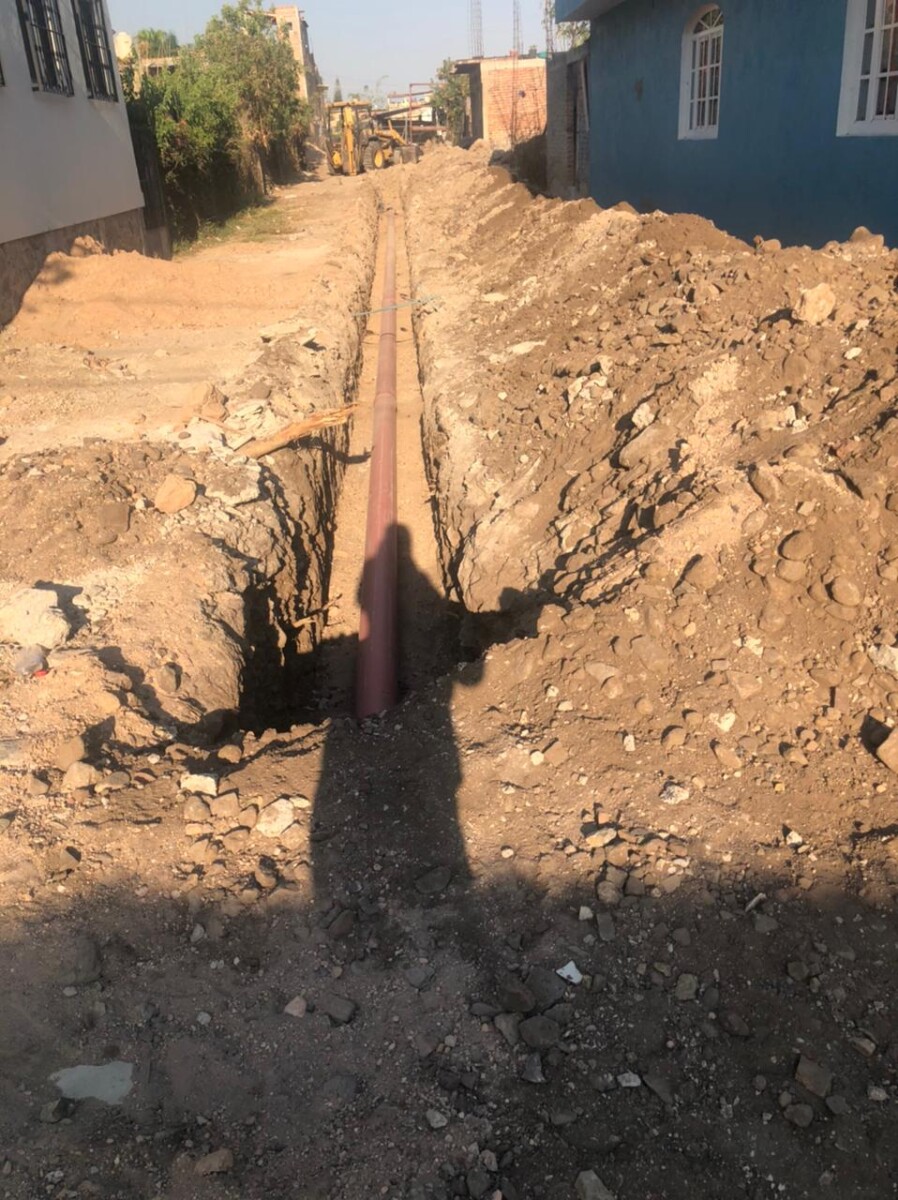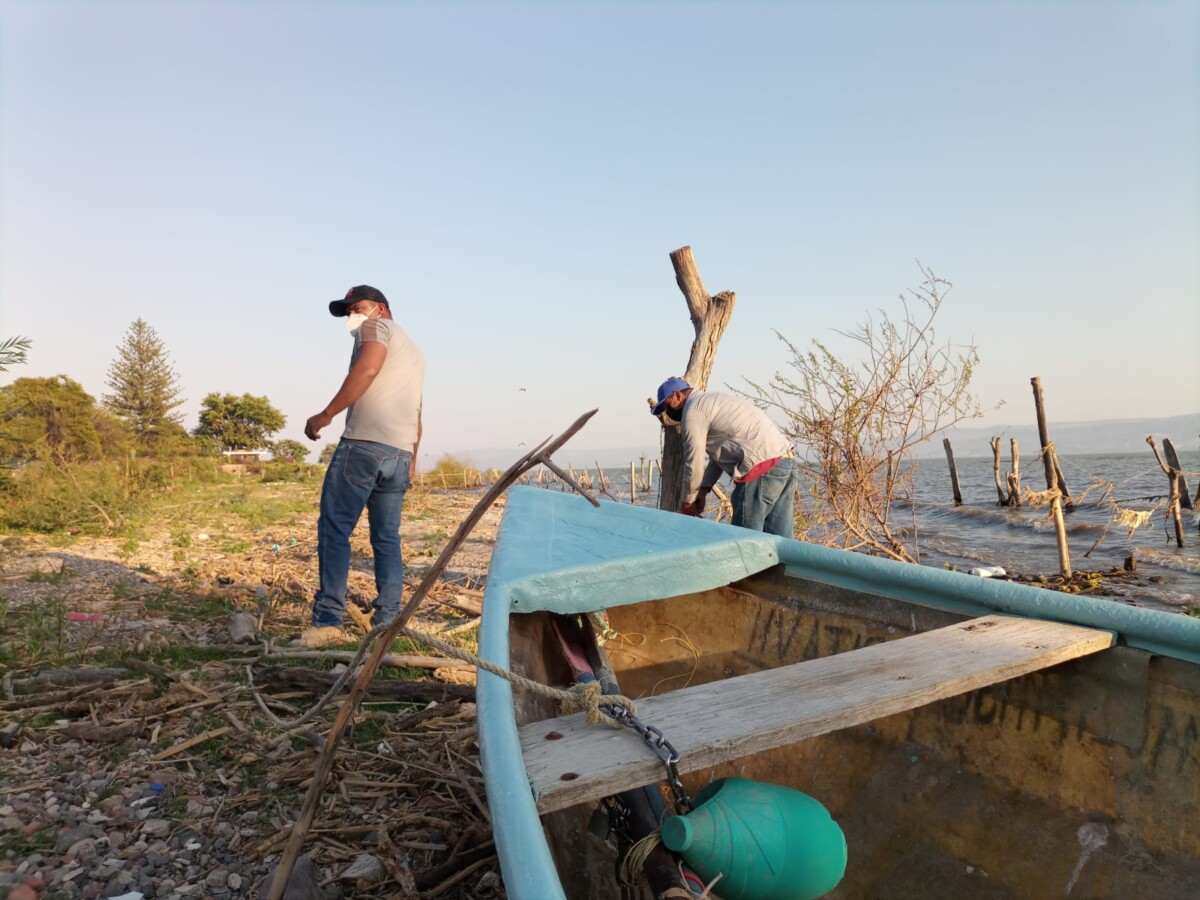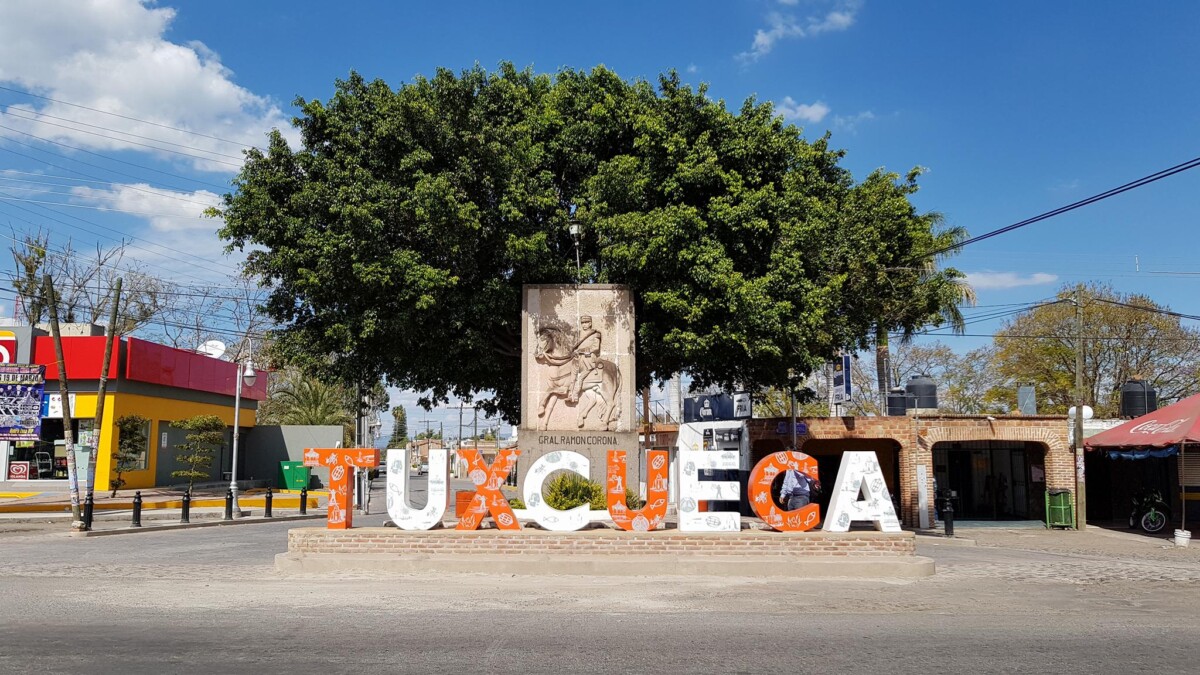noticias
Imparte Proepa curso de capacitación en descargas residuales a municipios ribereños
La Proepa impartió a los municipios ribereños, el curso “Fundamentos y alcances legales de la autoridad municipal en materia de inspección y vigilancia de descargas de aguas residuales”. En la foto una pareja disfruta de un atardecer en el malecón de Chapala. Foto: D. Arturo Ortega.
Redacción.- Con el fin de apoyar los gobiernos locales dentro del Área de Intervención Prioritaria del Río Santiago (Aip), la Procuraduría Estatal de Protección al Ambiente (Proepa) impartió un curso de capacitación sobre la descarga de agua residuales y así dar continuidad a la estrategia Revivamos el Río Santiago.
La capacitación incluyó información sobre legislación federal y estatal, en la cual se señalan atribuciones de la autoridad municipal en materia de aguas residuales, así como Normas Oficiales Mexicanas que establecen límites máximos permisibles de contaminantes para las descargas que se vierten tanto a cuerpos receptores y bienes nacionales, como a redes de alcantarillado urbano o municipal.
El curso busca fortalecer las capacidades técnicas y legales de las autoridades municipales para que el personal técnico y operativo de las áreas y direcciones involucradas en este rubro, conforme a los conocimientos adquiridos, desarrollen habilidades y herramientas que mejoren sus funciones de inspección y vigilancia, llevando a cabo como parte del curso una evaluación diagnóstica previa y una más al final del curso a las y los participantes.
El curso “Fundamentos y alcances legales de la autoridad municipal en materia de inspección y vigilancia de descargas de aguas residuales” estuvo dirigido a autoridades municipales de los ayuntamientos involucrados, así como a municipios que integran la Asociación Intermunicipal para la Protección del Medio Ambiente y Desarrollo Sustentable del Lago de Chapala (Aipromades) y el Instituto de Planeación y Gestión del Desarrollo del Área Metropolitana de Ocotlán (Imeplan).
Al Centro Cultural Metropolitano Ramón Vargas del Ayuntamiento de Poncitlán, asistieron las y los titulares, así como personal adscrito de las Direcciones de Ecología; de Inspección y Reglamentos; Agua Potable y Alcantarillado; Padrón y Licencias, así como los directores de Aipromades, Gabriel Vázquez Sánchez y Luis Arturo Macías García de Imeplan Ocotlán, entre otros.
Center for Technological Studies in Continental Waters (CETAC 01) educational personnel work under protest
CETAC 01, Jocotepec campus, on technical strike due to disputes about working conditions for teaching staff. Photo: Héctor Ruiz.
Héctor Ruiz Mejía (Jocotepec).- The teaching staff of the Center for Technological Studies in Continental Waters (CETAC 01), in Jocotepec, is on technical strike (not a classic strike, but working with modified conditions like shorter hours by mutual agreement) over a labor dispute.
The dispute began on May 12 and, as of May 23, despite attempts at dialogue, there is still no resolution.
After a series of accusations of labor inconsistencies by the educational personnel of CETAC 01, with the support of the National Union of Education Workers (SNTE), Section 16, they are requesting an immediate resolution to the alleged infractions.
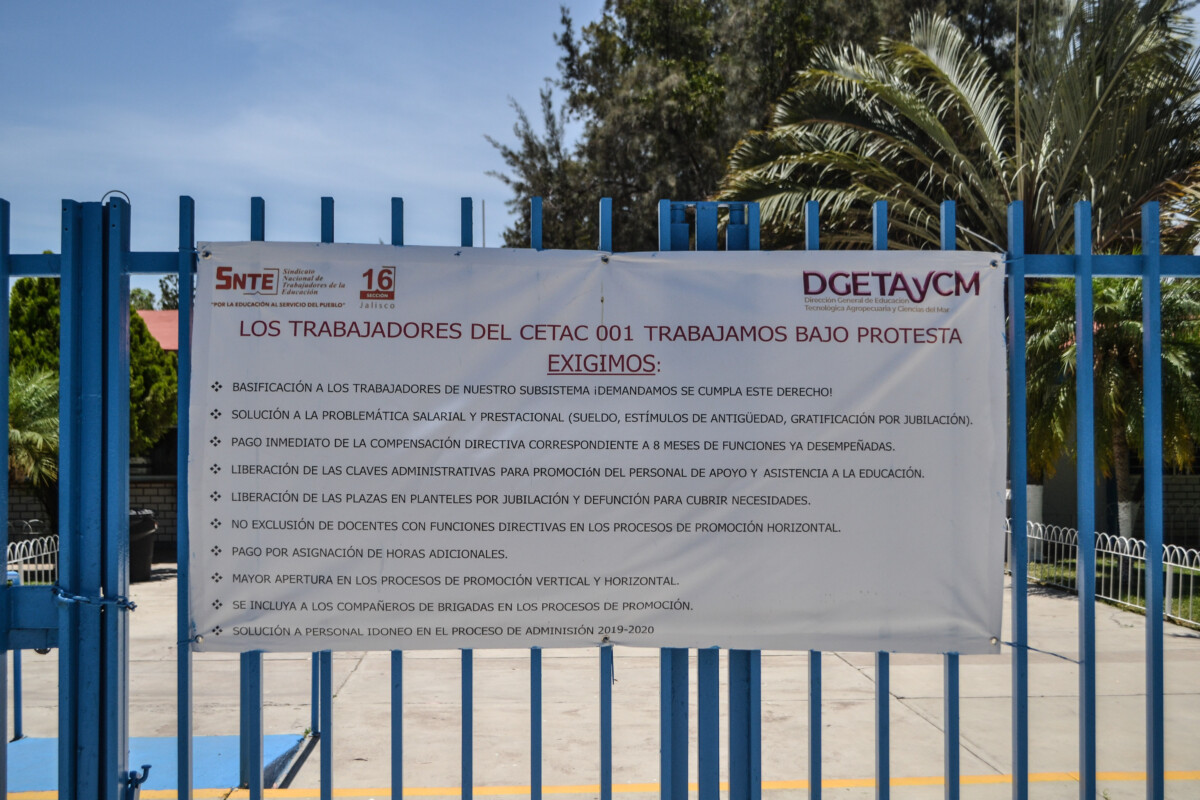
Banner placed over the entrance of the educational institution, detailing the demands. Photo: Héctor Ruiz.
They are demanding a solution to problems including salary, overtime, seniority incentives and retirement bonuses, as well as immediate compensation to managers unpaid for eight months.
On Facebook, the user Eriika Naye posted that her husband “has not received his salary as a manager since last August, a little more than eight months». and the family is struggling.
In addition to the salary demands, the teachers and administrative personnel are also demanding a solution to the admission process for qualified personnel, and filling positions vacant due to retirement and death.
The disagreement between the teaching staff and the academic institution began a little more than five months after Norma Angelica Huerta García was sworn in as the new director of the campus. She was not available to issue a statement on the matter, except to assure that «they are working on the dialogues to find a solution».
Translated by Paul Weeks
Water pipe replacement on Galeana Street in San Juan Cosalá
The drainage pipe was renovated in a section of Galeana Street. Photo: Alma Serrano
Alma Serrano (San Juan Cosalá).- On May 16, the Jocotepec City Hall started renovation work of the water and sewer networks on Galeana Street in San Juan Cosalá.
The work will be carried out in two phases. First, the replacement of the drainage pipes, which is currently being worked on between Zaragoza and 5 de Mayo streets. Then later, the renovation of the water infrastructure.
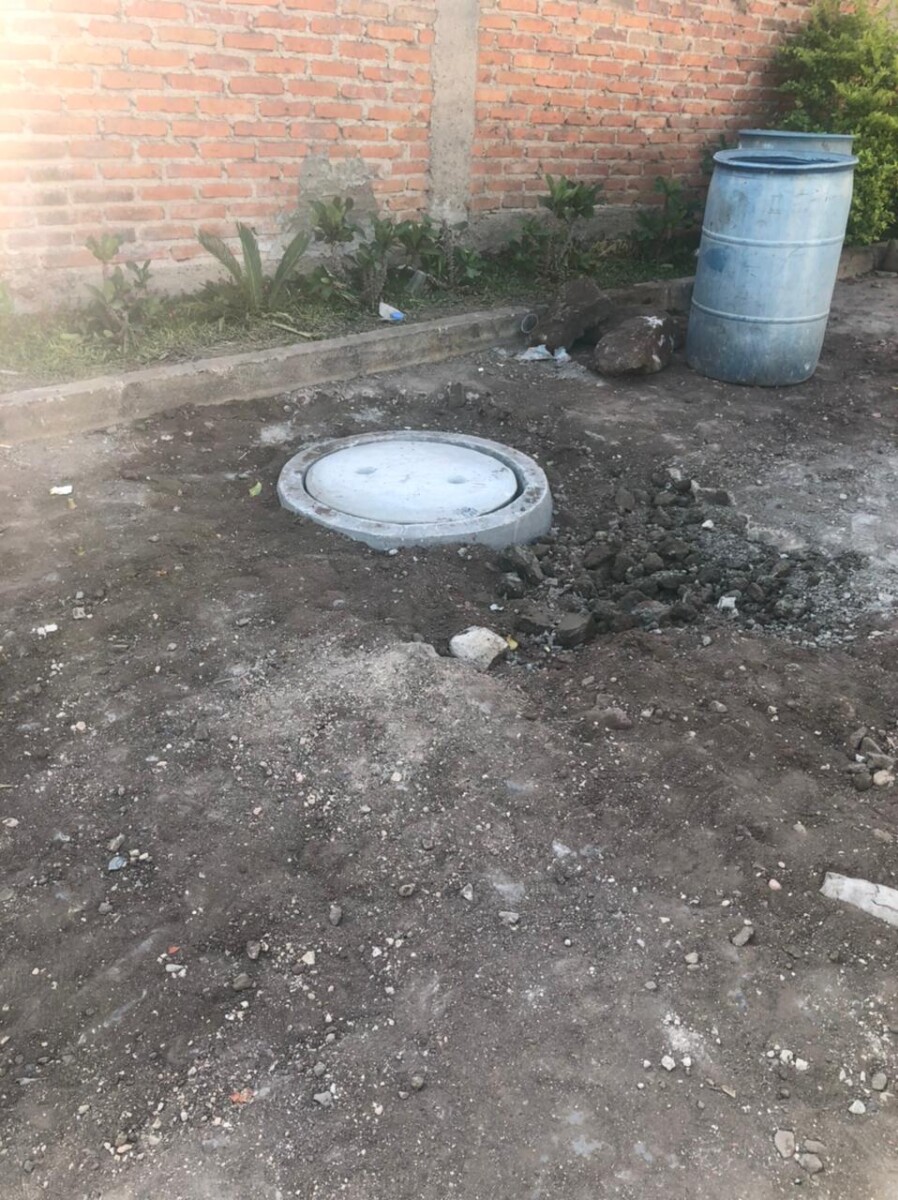
The rest of the pipeline on Galeana Street is awaiting approval . Photo: Alma Serrano.
Residents of Galeana Street said the pipe was laid by Father Adalberto Macías Llamas’ workers more than 30 years ago. It has exceeded its useful life, causing sewage spills.
Samuel Tolentino, former manager and operator of the drinking water system, said the Zaragoza water well pump has been pumping sand and was thought to be a water management problem. However, it was due to the large amount of sand contained in the pipe which impeded its flow and pressure. In addition, there are holes caused by deterioration over the years.
Carlos Vázquez Reyes, the delegate of San Juan Cosalá, collected signatures to obtain approval from the Government of Jocotepec to change all the pipes in the street.
The first phase to repair the drainage pipe has been authorized. The second phase for the repair of the rest of the water infrastructure is awaiting approval.
Juan Ibarra, the person in charge of the work, said that a pipe larger than three inches is required for optimal functioning. The current pipe measures only two inches.
For the neighbors who live on this street, this work is urgent due to the deficient water service they receive due to the poor infrastructure conditions. They were grateful for the intervention of the authorities.
“It is a good thing that they are taking action on the matter so that we don’t have to struggle so much. The water is used every day and in great quantity,” said Mrs. Mary, 63 years old.
Translated by Mary Woods
San Antonio Tlayacapan residents remove dangerous fencing encroaching on public land
Citizens of San Antonio Tlayacapan cut the wires that were blocking access. Credit: Armando Esquivel.
Armando Esquivel (San Antonio Tlayacapan).- Residents of San Antonio Tlayacapan removed poles and barbed wire from the shore of Lake Chapala because they considered it a clear invasion of the federal zone and because the sharp fencing is a risk to local people.
During the action on May 20th, the activists were met with insults, shouts, and even threats. The activists gathered on the San Antonio Tlayacapan boardwalk. They were inspired by similar activists in Ajijic who work tirelessly to protect the free and public access to the Ajijic boardwalk. Little by little more people arrived, including women, men and senior citizens, all willing to defend public land.
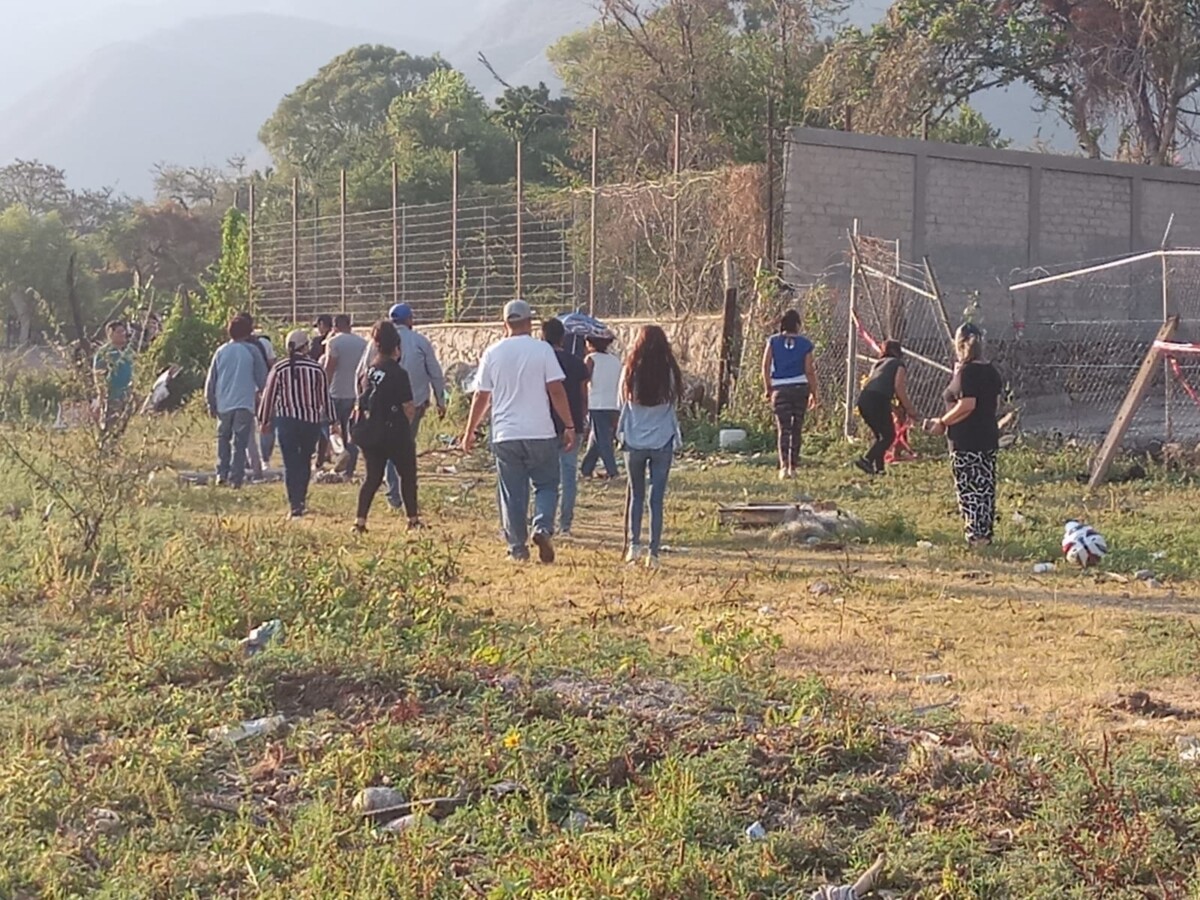
People of various ages gathered against encroachment into Lake Chapala. Credit: Armando Esquivel.
The first action was to remove black plastic covering the construction of a completed fence. The plastic covering had closure seals from the Government of Chapala. As they removed the plastic someone came out to videotape the protesters. They decided to walk east, where they found several posts with wires on the shores of the lake.
There they found posts with barbed wires impeding the passage of people along the beach. Given their placement, some of the fences will be underwater as the lake level rises during the rainy season. Submerged barbed wire fences are a major hazard for anyone trying to access the lake. They’re also very difficult to remove once they’re underwater. The activists said they are bothered by these fences since there is a real risk of someone entering the lake, and getting stuck in the wires. This is not speculation on their part, people have been killed and injured by submerged fences in the lake.
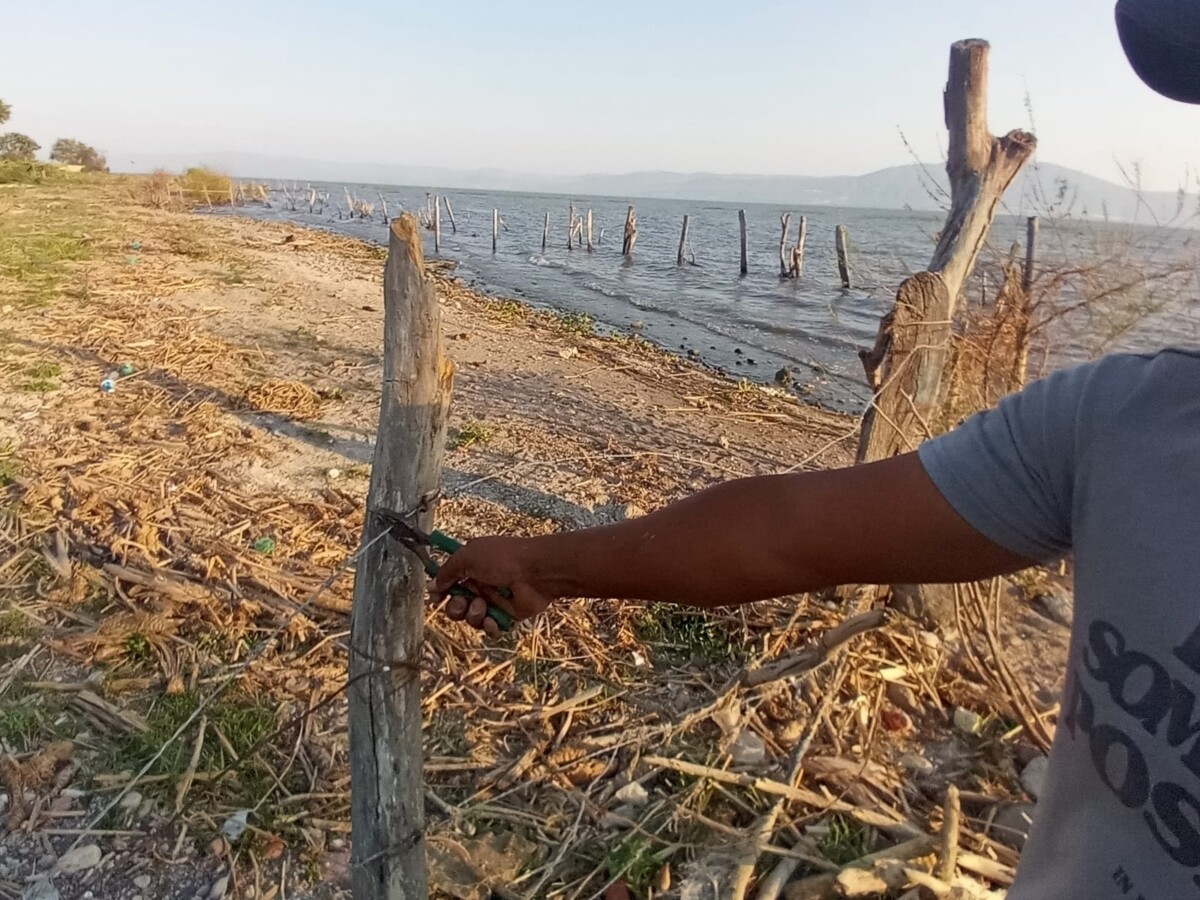
Several meters of wire were removed Credit: Armando Esquivel.
In one of the nearby properties, two men leaned out from their terrace to shout at the citizens who were removing the posts. They yelled things like, «Stop what you’re doing! What didn’t you hear? This is a crime. We are going to call the police.» They took pictures of the activists and waited for them to leave rather than confronting them directly.
About 15 posts were removed, and barbed wire on the posts was cut. Cutting the fences restored access to the shore of the lake for all citizens. The activists of San Antonio Tlayacapan said that they will continue protecting access to the lake and that they will fight against the invasions of the federal zone.
Translated by Amy Esperanto
Private initiative offers to “makeover” small businesses in Ajijic
(From left to right) Araceli Kopiloff, Katja Kohl, creators of Negocios Mágicos Ajijic, and Maximiliano Macías Arceo, the person in charge of the project. Photo: Max Macías Arceo.
Sofía Medeles (Ajijic).- Two designers and residents of Ajijic, decided to start a project to support small businesses in Ajijic to improve their image and enhance the image of Ajijic, the Pueblo Mágico.
Acting Delegado Maximiliano Macías Arceo said that the creators of the initiative «Negocios Mágicos Ajijic», Araceli Kopiloff and Katja Kohl, pitched him on the project, which he gladly accepted , since it will support small businesses on Ajijic.
This project consists of renovating the image of the businesses by giving them a more colorful and eye-catching look at the minimum possible cost. The taqueria «El Paisa» on the highway in West Ajijic will be the project’s first “makeover”. The remodeling will begin on June 1st and will reopen on June 3rd in the evening.
Katja Kohl said that they are looking to show locals that great design is within everyone’s reach, and that one of their main objectives is that Ajijic has striking visual characteristics, through its businesses.
Araceli said that her goal would be to improve at least 10 businesses per year, and that she is grateful for Max’s support, and hopes that the initiative will reach the president of Chapala, so that the municipal government will support it.
Both commented that they will soon open another call for applicants, so that businesses can apply for their support. Updates will be available through the Facebook page «Negocios Mágicos Ajijic».
Translated by Patrick O’Heffernan
Ajijic pedestrian walkway will remain active despite lack of government attention
Pedestrian walkway on Colón street, in downtown Ajijic, invaded by cars. Photo: Sofía Medeles.
Sofía Medeles (Ajijc).- Although authorities have ot been policing the pedestrian walkway on Colon and removing parked cards, signs and other illegal obstructions, they plan to continue setting it up every weekend, according to Acting Delegado Maximilano Macías Arceo.
itis common to see vehicles invading the road, as well as advertisements and even bicycle racks outside businesses in the pedestrian walkway created by traffic cones on Colón Street, from Parroquia Street to the Malecón.
Macías Arceo commented that he is still waiting for orders from the municipal government of Chapala to improve the pedestrian walkway project, which is still being developed and will be presented to residents for their input before being carried out. However, in the meantime traffic officers are usually on the lookout for vehicles that are parked to report them, he said.
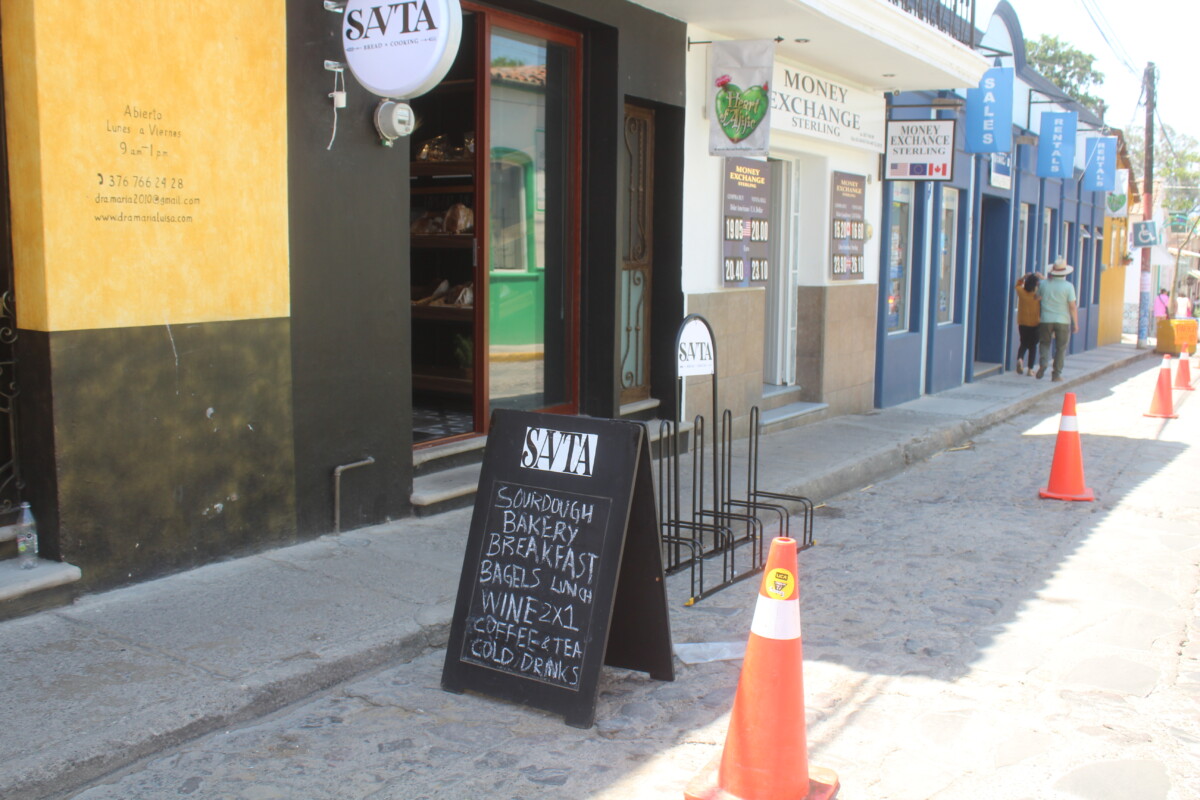
Not only vehicles, but also advertising obstructs pedestrian space. Photo: Sofía Medeles.
«The transit officers are usually doing their rounds and reporting parked cars. Although they are doing their job, people sometimes disrespect or ignore them,» he said
Maximiliano added that there is no explanation as to why they park on the walkway, since, in addition to the fact that the tourist flow is decreasing due to the season, the east side of the pier was recently opened for parking.
We interviewed some tourists of the Pueblo Mágico over the weekend and, although in comparison with the last survey carried out in February where several visitors assured that they did not know what the walkway was for, this time, most of them did know, although they doubted its functionality.
«Apparently it is for people to walk on it, but there are always cars parked. It gives the impression that they are charging to park. It would be a better choice to completely close this avenue to be a walkway,» said Julissa, who visited Ajijic from the city of Guadalajara.
Translated by Patrick O’Heffernan
Auditions announced for Lakeside Little Theater’s 10-Minute Play Festival
Presentation of one of the plays
Lakeside Little Theater will present its first Mark Boyer 10 Minute Play Festival, postponed for 2 years because of Covid. Eight plays by local playwrights will be presented August 4, 5, 6 & 7, 2022, in a judged competition. Each play will be performed each day and judged by a panel of judges with a focus on playwriting. Audiences will vote on their favorite for the Peoples’ Choice Award. Auditions will be held at Lakeside Little Theater in San Antonio Tlayacapan. There are 10 roles for men and 10 for women and actors can appear in two plays. No prior acting experience is necessary.
The individual time slots for the different plays are:
June 2
10:00 – 11:00 The Pitch
11:00 – 12:00 I Wish
12:00 – 1:00 To Err is Human
1:00 – 2:00 Ding Dong! The Witch Is Dead!
June 3
10:00 – 11:00 Borderline
11:00 – 12:00 Estoy Enfermo
12:00 – 1:00 New on the Streets
1:00 – 2:00 Short Cuts
For details on each play go to the Lakeside Little Theater Facebook page. For scripts email 10minuteplays@lakesidelittletheatre.com.
México and U.S. head in different directions on abortion
In the U.S., the Supreme Court decision will hand the determination of abortion legality to individual states
In 1973, the Supreme Court of the US passed a ruling in the famous Roe v Wade case that made abortion legal in all 50 states.
Since that time, individuals, religious groups, and legislators have tried to limit the access women have to obtain an abortion. When the leaked memo signed by Supreme Court Justice Samuel Alito was made public recently, this issue has come to the forefront again.
The story is different in México.In a unanimous 10 to 0 ruling in September 2021, the Supreme Court of Justice in México decriminalized abortion in the states of Coahuila and Sinaloa.
The effects of these rulings are broader in México since it sets a federally binding precedent: Judges cannot sentence people to jail for either having or assisting in induced abortions, even if local legislative bodies have not changed their criminal laws. The Mexican Supreme Court also established that local rules granting protections of «life from conception» were invalid—and that access to legal abortions is a fundamental right.
Back in the U.S., the Supreme Court decision will hand the determination of abortion legality to individual states, many of which are gearing up to outlaw abortion completely or criminalize, subjecting women who have abortions or even miscarriages to jail time. The impact will fall hardest on those women who cannot afford or don’t have the ability to cross state lines where the procedure is legal.
The leaked U.S. ruling is likely to go into effect since there are five very conservative judges on the Court. In addition, people fear this will not be the end. It will open the floodgates for more restrictive laws to be put forth. Laws like banning same-sex marriage, undermining rights of transgendered people, and even eliminating interracial marriage are already being considered.
This is why we, all the members of Democrats Abroad Mexico, encourage ALL US citizens to vote in the upcoming midterm elections—and to vote for candidates who will work against this extreme movement to limit women’s rights.
For further information, go to the Lake Chapala Society every Monday from 10:00 am to 12:30 pm to request your overseas ballot and more. Or go to VotefromAbroad.org and follow the instructions on the webpage.
46: number of weeks Amy E.’s car has been in jail
SOS Dog Rescue closes West Ajijic shelter as Municipality opens new one in Chapala
Chapala municipal workman installing new cages in new dog shelter in east Chapala. Photo: Chapala official video
Patrick O’Heffernan (Ajijic).- SOS Chapala Dog Rescue announced on Facebook Monday, May 23, that it is closing its dog shelter in West Ajijic. The next day, May 24, The Chapala municipality announced via a Facebook video the construction of a new shelter for dogs in Hacienda La Labor in East Chapala.
If the new shelter is properly completed to handle up to 100 dogs, and the dogs from the SOS facility in West Ajijic are moved to it and then closes down, the Aguirre Administration will have solved a Gordian knot of technical and legal problems and competing interests handed to it by the previous administration. However, as of the close of this edition, a few questions remain unanswered.
The actions by both entities are the result of a year-long political and legal battle involving homeowners whose lives have been turned upside down by the noise from the SOS West Ajijic shelter, SOS who took on management of the facility in good faith for the municipality and invested large sums of money into it, the Chapala municipality, and the Jalisco State Pension Fund.
As Laguna reported on May 13 of this year, a group of 20 Mexican and Expat homeowners and representatives of several Homeowners Associations in West Ajijic filed a lawsuit against the SOS Chapala Dog Rescue organization, the Chapala government, and the Jalisco State Employees’ Pension Fund over the dog shelter established by the previous municipal administration near their homes.
SOS operates the shelter under an agreement with the previous administration, which established it on land originally donated to the municipality for a graveyard. However, after SOS took over the Department of Ecology’s flailing operation, invested $800,000 pesos and turned it into a shelter noted in the industry for its high standards (but condemned by its neighbors for noise), the previous administration transferred the land to the Jalisco state Pension Fund to pay a debt to the Fund. SOS was not informed of the transfer and the Fund was not informed of the existence of a shelter on its property… essentially dumping the problem in the lap of the State and SOS before it left office.
The original shelter established and operated by the Moisés Anaya Administration was built without consulting the surrounding homeowners who found themselves suddenly inundated with the loud barking of dozens of dogs 24/7. Months of negotiation to solve the barking at the shelter went nowhere so the homeowners sued. In a copy of the lawsuit obtained by Laguna, the plaintiffs charge that the dog shelter was illegally established by the Anaya Administration on land zoned for housing only, and that the agreement between the Anaya Administration and SOS Chapala Dog Rescue was invalid. The lawsuit requests that the court orders administrative action be taken to move the shelter to a site zoned for the correct use.
The new administration reopened negotiations, found a useable site, and obtained a commitment from the homeowners to pay the lease fees – $15,000 pesos per moth – and, according to a photo provided to Laguna by the homeowners, signed a lease on May 2 with Señor Trinidad in Hacienda la Labor for a former horse facility.
“The lease is for a 11,000 sq meter space with electricity and water and everything they need. It is a dog paradise, Linda Freeman, a spokesperson for the homeowners told Laguna, adding that, “ it’s $15,000 pesos a month but the homeowners agreed to pay for 2 months in advance and (all rent) for two years. The owner has been given $30k.by the municipality, but we paid for it through a donation to the municipality. As a group we will continue to support the municipality” Freeman. They are acting in good faith.”

Jesús González pointed out the new construction at the dog shelter to Chapala President Aguirre. The concrete pad for new cages is in the background. Photo: Chapala official video
Sue Hollis of SOS sys not so fast; the site is not properly prepared and the lease is too short for serious investment.
Questions about the site remain unanswered, as well as who will manage the new shelter, but the government is not asking for any investment for SOS, according to the homeowners.
I know for a fact that the government did not expect SOS to pay one cent for either the lease or for construction of new facilities,” Nita Rudy, President of the Puerta Arroyo Homeowners Association, told Laguna.
As to the site, Hollis pointed to issues with the facility in terms of design and construction.
“They (the municipality) are not building new cages, just dividing the existing stalls, which have to be fumigated for ticks before dogs can use them, plus they have to have drainage for the needed daily washdowns. And outside of the stalls they want to put dog runs in the corral, which is not acceptable because many dogs in one run will get into fights, especially during fireworks,” Hollis told Laguna in a telephone interview.
Hollis said that she (SOS) refuses to put money into a new property with only a two year lease and that the rent after that is much too high for the group.
“We cannot afford this and it is not an appropriate site. We were quite willing to move, but it has to be the right property under the right conditions,” she told Laguna.
However, Nita Rudy told Laguna that in a meeting with Mr. Trinidad and representatives of the municipality, he indicated he would be willing to extend the lease and perhaps even sell the land.
It is currently unclear if the site under construction by the municipality will meet these requirements. It is also unclear where the monthly rent will come from beyond the funds provided by the homeowners group for the two years of the lease. The group has paid $30,000 pesos for first and last month’s rent and committed to pay the monthly rent for the duration of the lease, if the dogs are removed from the West Ajijic site. But as to who will make the payments after two years is still up in the air. Laguna has reached out to the Chapala government with these questions but at press time has not received a response.
However, as far as the facilities are concerned, the video released by the municipality not only shows the horse stalls being divided into cages, but additional cages being constructed on concrete pads installed by Jesus González of the Department of Ecology. In the video, Jesus tells President Aguirre that the facility is 60% complete and in 8 – 10 days will have 50 completed cages. The video does not reveal the sanitation system for daily cage cleaning or the septic system for handling the daily waste of 100 or more dogs. Laguna has requested these details from the Administration.
The controversy seems to be coming to a head. The Jalisco State Employees Pension Fund has ordered SOS to leave its site and SOS is closing it down. The Municipality has leased and is nearing completion of a new shelter in East Chapala and claims it can begin to take dogs very soon. The homeowners have paid $30,000 pesos to the landowner and agreed to pay the rent for 2 years, but only if the dogs and the cages in SOS shelter are removed. Secretary General of the Council Lilia Alvado Macías informed the homeowners that the SOS dog shelter lawyer had seen the site and agreed to it,” allowing the dogs to be moved and SOS to manage it.
The only questions that remain are: will the new shelter meet the standards SOS requires to manage it, will the owner extend the lease after two years so the municipality and the site manager will not be scrambling for another site, and can funding be found or guaranteed to meet the rent payments after the lease is up and a new administration takes over.
The first question may be answered if SOS closes the facility and adopts out or fosters the dogs, rather than send them to the new shelter and manage for the municipality. The second question may take two years to answer and will be handed to the next administration. The third question could come down to the ability of any operation at the new site to pay for itself either through adoption fees, municipal funds, or donations.
In the meantime, anyone looking to adopt or foster a dog, should contact SOS Chapala Dog rescue through its Facebook page, https://www.facebook.com/soschapaladogrescue
Encuentran a tres ejecutados en pozo artesanal en Tuxcueca
Letras monumentales en el municipio de Tuxcueca. Foto: Cortesía.
Redacción.- Tres hombres fueron localizados sin vida en el interior de un pozo artesanal en el municipio de Tuxcueca el domingo 29 de mayo, por lo que la Fiscalía del Estado de Jalisco ya realiza investigaciones.
El hallazgo se dio sobre la carretera federal Tuxcueca a San Luis Soyotlán a medio kilómetro del panteón municipal gracias a una denuncia anónima que fue recibida en la cabina de la Policía Municipal.
Personal del Ministerio Público y la Policía Investigadora corroboraron el hecho y Protección Civil acudió al lugar para la extracción de los cuerpos, ya que el pozo cuenta con una profundidad de entre los 10 y 15 metros.
Los cuerpos rescatados se encontraban armados, contaban con impacto de bala en el cráneo y fueron puestos a disposición de elementos del Instituto Jalisciense de Ciencias Forenses según el comunicado emitido por la Fiscalía.
© 2016. Todos los derechos reservados. Semanario de la Ribera de Chapala

